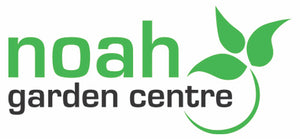In Singapore, where space is often at a premium, indoor gardening has become a beloved hobby. Among the various plants that Singaporeans enjoy growing, herbs and edibles are particularly popular. They not only add greenery to homes but also provide fresh ingredients for cooking. However, growing herbs indoors requires specific care to ensure they thrive. This blog will delve into why herbs and edibles are favorites and offer essential tips for keeping them healthy indoors.
Why Herbs and Edibles Are Favorites in Singapore
The appeal of growing herbs and edibles indoors is multifaceted. Here are some reasons why Singaporeans love cultivating these plants:
- Fresh and Convenient: Having fresh herbs like basil, mint, and parsley at arm’s reach enhances the flavor of dishes and promotes healthy eating.
- Space-Efficient: Herbs can be grown in small pots and containers, making them ideal for apartments and limited spaces.
- Aesthetic Appeal: Herbs add a touch of greenery and beauty to indoor spaces, enhancing the home environment.
- Educational: Growing edibles provides a rewarding and educational experience, especially for families with children.

Here are The Essential Tips for Growing Herbs Indoor
While growing herbs indoors is relatively straightforward, there are a few key practices to ensure they stay healthy and productive.
1. Watering: Let Plants Dry Between Waterings
One of the most common mistakes is overwatering. It's crucial to allow the soil to dry out between waterings to prevent root rot.
- Watering Schedule: Water your herbs when the top inch of soil feels dry to the touch. This typically means watering once a week, but it can vary depending on the indoor climate and the specific herb.
- Drainage: Ensure pots have drainage holes to allow excess water to escape. Using a well-draining potting mix also helps maintain the right moisture level.

2. Lighting: Provide Adequate Light
Herbs need plenty of light to thrive, but too much direct sunlight can scorch them.
- Natural Light: Place your herbs in a spot where they can receive 6-8 hours of bright, indirect sunlight daily.
- Artificial Light: If natural light is insufficient, consider using grow lights to supplement. LED grow lights are energy-efficient and effective.

3. Soil: Use the Right Potting Mix
The right soil mix can make a significant difference in the health of your herbs.
- Potting Mix: Use a light, well-draining potting mix designed for herbs or vegetables. Avoid garden soil, which can be too dense and may harbor pests.
- Fertilization: Feed your herbs with a balanced, water-soluble fertilizer every 4-6 weeks to promote healthy growth.

4. Humidity and Air Circulation
Indoor environments can sometimes be too dry for herbs, particularly in air-conditioned spaces.
- Humidity: Increase humidity around your plants by misting them regularly or using a humidity tray.
- Air Circulation: Ensure good air circulation to prevent fungal issues. A small fan can help keep the air moving around your plants.

5. Pruning and Harvesting
Regular pruning encourages bushier growth and prevents your herbs from becoming leggy.
- Pruning: Trim back the top growth regularly to encourage new leaves. Remove any dead or yellowing leaves promptly.
- Harvesting: Harvest herbs frequently by cutting back stems just above a leaf node. This practice not only provides fresh herbs for your kitchen but also encourages more vigorous growth.

6. Dealing with Pesticides on Nursery Herbs
Many herbs from nurseries are treated with pesticides to keep them healthy during their initial growth phases. It's important to address this before consuming the herbs.
- New Leaves: Only consume the new leaves that grow after you’ve brought the plant home, as they are less likely to have residual pesticides.
- Washing: Thoroughly wash the herbs with soap specifically made for washing fruits and vegetables before consumption. This helps to remove any residual chemicals on the leaves.

Popular Herbs to Grow Indoors in Singapore
Here are some favorite herbs that Singaporeans love to grow indoors:
- Basil: Great for pestos and salads. Requires lots of light and warmth.
- Mint: Perfect for teas and garnishes. Grows well with regular pruning.
- Rosemary: A robust herb that enhances meats and stews. Needs good light and well-draining soil.
- Thyme: Versatile for various dishes. Prefers bright light and dry conditions.
- Cilantro: Essential for many Asian dishes. Likes cool temperatures and moderate light.

Conclusion
Growing herbs and edibles indoors is a rewarding hobby that adds flavor to your cooking and greenery to your living space. By following essential care tips like proper watering, providing adequate light, and regular pruning, you can ensure your indoor herb garden thrives. Additionally, addressing pesticide concerns by consuming new leaves or washing herbs thoroughly ensures your homegrown herbs are safe to eat.
Ready to start your indoor herb garden? Embrace the joy of growing your own herbs and enjoy the fresh flavors and vibrant greenery they bring into your life.
Check out these cool recipes using these common herbs and edibles too:



